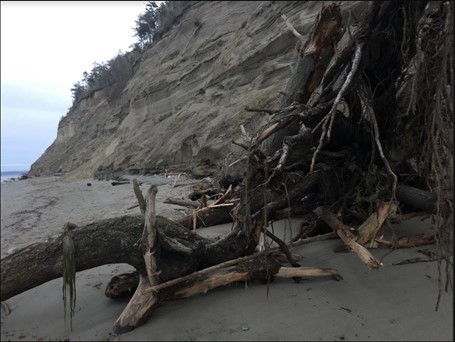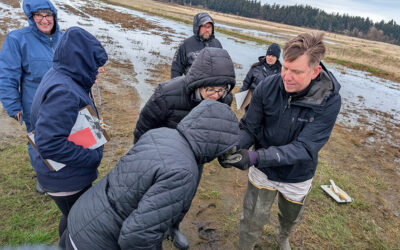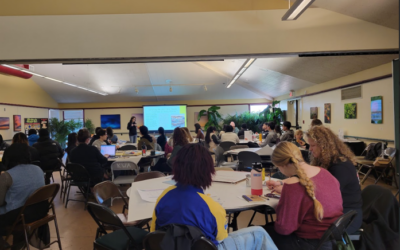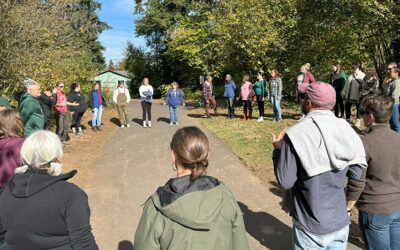During the week of January 25th 2021, 24 teachers from 12 school districts across Washington state attended a three-day online workshop, Solutions Oriented Learning Storylines: Coastal Hazards, with Pacific Education Institute’s FieldSTEM Coordinators Karen Lippy and Molly Griffiths along with two teacher leaders and local community partners.
To begin the workshop, Karen acknowledged the land that she resides on and gave time for the participants to research the lands they currently occupy. Sonni Tadlock, a descendant of the Colville tribe, presented her research and work with clam gardens, which are a traditional food source and cultural resource for some coastal Indigenous peoples. Clam garden restoration efforts are threatened by sea level rise and ocean acidification. One participant shared in the course evaluation that, “I had no idea about the ancient clam gardens and the tribal relocation plans. That was eye-opening, and I’d love to be able to include that in the future.” An asynchronous activity connected the session’s concepts by having participants research their local tribal nations and identify actionable steps to incorporate tribal history and perspective in their classrooms.
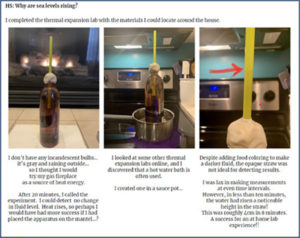
A participant modeling a thermal expansion lab from the middle school storyline.
The second session introduced participants to Dr. Ian Miller, a Coastal Hazards Specialist from Washington Sea Grant who discussed the impacts of coastal hazards along the Washington coast and Puget Sound. Dr. Miller gave an overview of adaptation and mitigation efforts for sea level rise, coastal erosion, and flooding. After hearing from Dr. Miller, participants shared their tribal nation research from their assignment in small groups. Multiple participants commented that learning about local Indigenous people was a new opportunity for them which they will carry into classroom teaching.
Finally, educators learned more about teaching science by discussing three-dimensional formative assessment strategies and being introduced to PEI’s Solutions Oriented Learning Storylines: Coastal Hazards to teach climate science in developmentally appropriate, locally relevant ways. After the workshop, a participant shared this sentiment, “Thank YOU for all of these new learning opportunities! I look forward to sharing soon inside my classroom and with my colleagues!” PEI will be publishing the Coastal Hazards storylines on the ClimeTime Open Educational Resource portal and on our website in June 2021.

